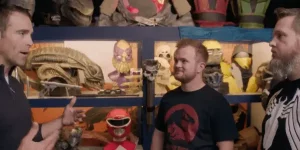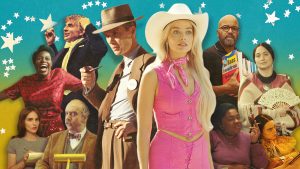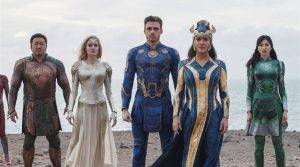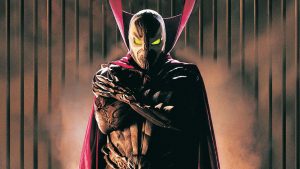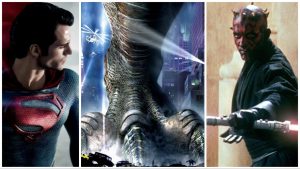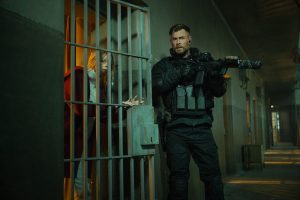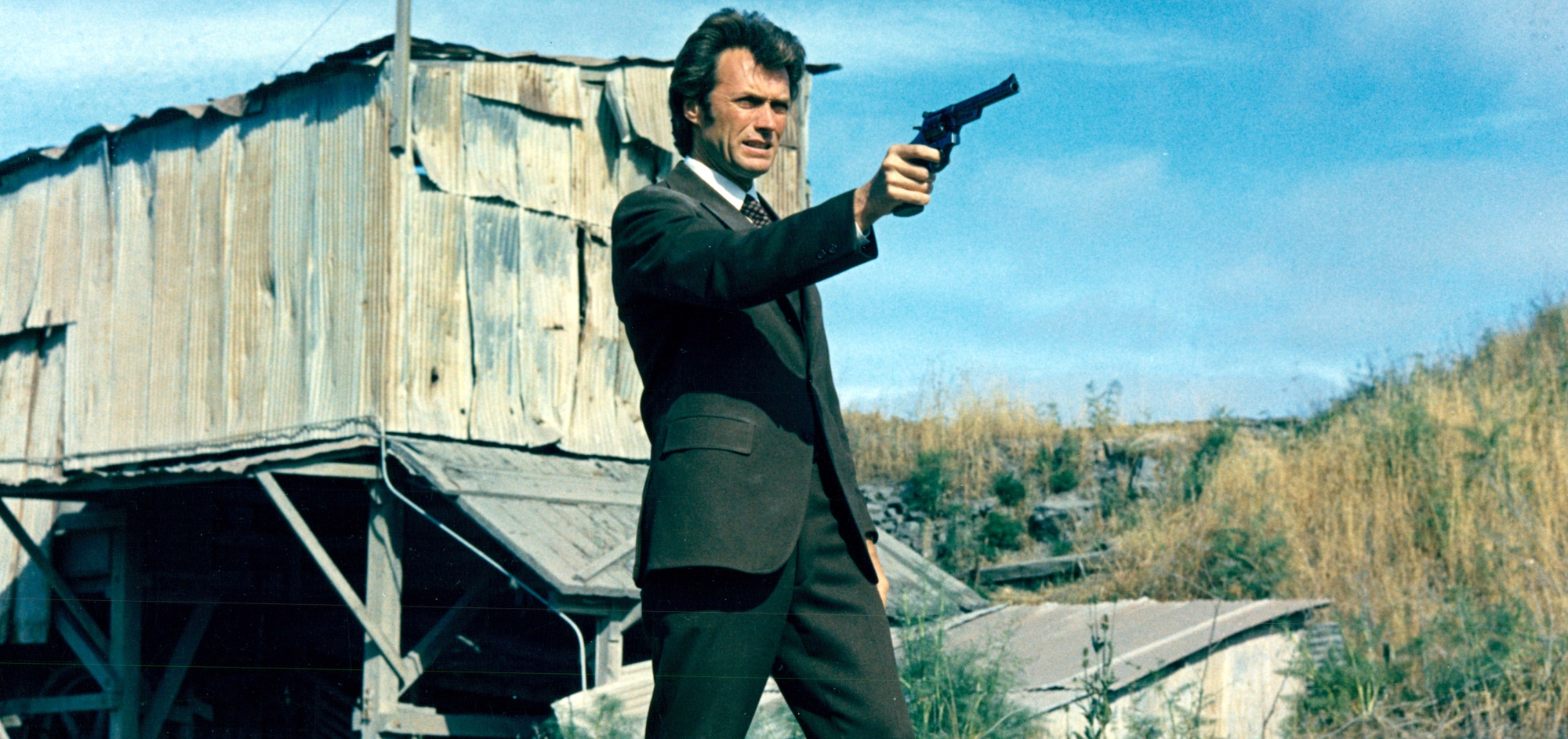
Inspector Dave Toschi needs a night off. After years of chasing the so-called Zodiac Killer, Toschi thought he had found his man, only for his captain to shoot him down, citing insufficient evidence to make an arrest. At the movie theater later on, the picture Toschi watches with his wife doesn’t make him feel any better. It’s Dirty Harry, the 1971 movie in which Clint Eastwood‘s Inspector Harry Callahan does battle with a killer called Scorpio.
Frustrated by what he’s seeing, Toschi heads to the lobby for a smoke. As viewers shuffle out after him, one remarks, “Dave, that Harry Callahan did a hell of a job with your case.”
“Yeah, no need for due process, right?” Toschi responds sarcastically to indicate his frustration.
Or, at least that’s how it went in the movies. Specifically, the film Zodiac, written by James Vanderbilt and directed by David Fincher, in which Mark Ruffalo portrayed the beleaguered real-life detective.
Fincher and Vanderbilt include the Dirty Harry scene as a bit of an in-joke. Thanks to his work on the Zodiac case, Toschi became a public figure, earning the attention of movie producers and stars, despite being a more “by the book” (as crime reporter Duffy Jennings put it) detective than the reckless cops that ended up in the movies.
The Life of Dave Toschi
In 1969, the Zodiac Killer captured the American imagination. It wasn’t just the fact that several random murders around Northern California had been attributed to the unidentified menace. It was also the letters that he sent to newspapers, cryptic messages that, once decoded, mocked the police for their inability to find him.
Several police officers worked on the case, but the media glommed onto Toschi. With his bow ties, fleece jackets, and especially his leather holster, which carried his pistol near his upper pectoral, Toschi became the breakout celebrity of the case. In fact, he became the face of modern policing, especially as Hollywood took notice.
Interestingly, Toshi’s influence on Hollywood actually began a year before the Zodiac case took the nation by storm. First, Steve McQueen molded the look of his character Lieutenant Frank Bullitt in the 1968 movie Bullitt after Toschi, complete with a tight black turtleneck and the signature holster.
“They literally were filming in my dad’s office,” Toschi’s daughter Linda Toschi-Chambers told The New York Times in 2018. “My dad took off his jacket, and Steve McQueen said, ‘What is that?’ And my dad said, ‘That’s my holster.’ And Steve McQueen told the director, ‘I want one of those.’”
Then director Don Siegel and Clint Eastwood took a long-in-production screenplay about a tough cop and serial killer and revised it to build on the events of the Zodiac killings. Dirty Harry not only chases after the mad Scorpio killer (Andrew Robinson, better known as the plain and simple tailor Garak from Star Trek: Deep Space Nine), but Callahan also wears Toschi style suits.
Unfortunately for Toschi, his newfound celebrity didn’t last for long. As his team failed to close the Zodiac case, public criticism increased. In 1976, Toschi countered the tide of bad press by writing fan letters under pseudonyms and sending them to various newspapers. When the San Francisco Police Department learned about Toschi’s actions in 1979, he was removed from the case, which remains unsolved to this day.
Toschi retired from the police force six years later to work in private security for a time. He would still regularly weigh in on the Zodiac case from time to time, including consulting on the Fincher film. Toschi died of pneumonia in 2018, but his influence on pop culture continues to this day.
Bullitt, Dirty Harry, and the Changing Face of Hollywood Police
It’s not just Toschi’s look that influenced Hollywood. The idea of a well-dressed, charismatic detective hunting an unstoppable killer was irresistible to screenwriters and producers. And when the movies hit theaters, they were met by a scared public ready to fantasize about the police keeping them safe.
Based on the 1963 novel Mute Witness by Robert L. Fish, and directed by Peter Yates, Bullitt follows the titular detective’s investigation into an international plot. After the mob witness he was guarding is killed, Bullitt does whatever it takes to get to the bottom of the murder, clashing with corrupt officials in the process.
Dirty Harry had a much longer development process. It began life as a script by Harry Julian Fink and R.M. Fink, about a New York City cop hunting a serial killer called Travis. As interest in the Zodiac killings grew, Warner Bros. rushed the project into production, with Eastwood and Seigel enlisting writer Dean Riesner to draw stronger connections to the Zodiac investigation. Travis became the Scorpio Killer, who taunted the police with cryptic letters when not stealing a school bus full of kids.
Both Bullitt and Dirty Harry end on notes of moral ambiguity. At the climax of Bullitt, McQueen’s cop pushes through an airport crowd to gun down the baddie. But instead of closing on the detective’s triumph, Yates inserts shots of the crowd’s shocked and saddened faces. No music accompanies the moment, just overlapping dialogue of people trying to explain what just happened. After killing Scorpio with his last bullet, Dirty Harry Callahan walks to a pond, removes his badge from his wallet, and tosses it away.
However, it’s not the soul searching of these movies that stuck with viewers and filmmakers. Rather, it was the exciting and reckless ways they got their man. To this day, Bullitt is best known for its car chase scene midway through the movie. Yates drops Lalo Schifrin’s jazzy score from the soundtrack, letting the sound of revving engines and screeching tires do the work as Bullitt chases the Dodge Charger he caught tailing him. Although surprisingly free of pedestrians, the San Francisco streets do have other cars on them, which Bullitt and his quarry smash without reservation.
Dirty Harry doesn’t even wait for Scorpio to get involved before he starts putting others in danger. Callahan’s in the middle of his lunch break when he sees a pair of bank robbers escaping. After killing one, Callahan delivers the famous “Do I feel lucky?” line. Once Scorpio does get involved, Harry grows even more reckless, ignores procedures, rules, and public safety to kill Scorpio and save the day.
Both movies — along with another 1971 classic, William Friedkin‘s The French Connection — established a new standard for on-screen cops: don’t stop until you get your man. Violate civil liberties, put innocent people in danger; it’s all okay if you kill the bad guy. But by the 1980s, the strands of ambiguity and ’70s grit washed away, leading to big, slick explosive films like Lethal Weapon and Cobra.
As Zodiac depicted, Toschi hated Dirty Harry‘s treatment of the case, as his respect for the laws forced him to give up on his prime suspect, Arthur Leigh Allen. But while Toschi backed off in real life, the public imagined what would have happened if he didn’t. They wanted to see cops who didn’t stop.
A Powerful Conversion
But as important as Bullitt and Dirty Harry are, sci-fi nerds of a certain age best know Toschi from a very different type of movie.
Early in Star Wars, the still-stuck on Tatooine Luke Skywalker bucks against an order from Uncle Owen. “But I was going into Tosche Station to pick up some power converters,” he whines. Owen refuses to let him go.
Just how did Toschi end up as a reference in Star Wars? In the August 1993 issue of Empire, George Lucas recalled how a teacher’s kidnapping drew his attention to the Zodiac killings and to Toschi. The Inspector’s work stuck with him, even as a high school and college student. “[I] felt that Toschi was harshly judged for his handling of the investigation,” Lucas revealed, so he used the name for Luke’s favorite power converter supplier.
Sure, Toschi pronounced his name “Toss-Key” and not “Toe-She.” But by that point, Toschi was used to the movies getting it wrong.
The post The Real-Life Detective Who Inspired Dirty Harry, Bullitt, and a Star Wars Location appeared first on Den of Geek.

